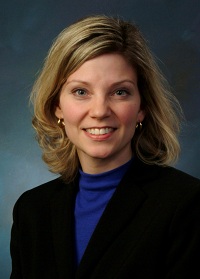
Women can help contribute to cancer research by donating a sample of healthy breast tissue during a collection event at the Barbara Ann Karmanos Cancer Institute in Detroit on Sept. 24, from 8 a.m. to 4:30 p.m.
Pre-registration is required before the event. Women ages 18 and older from all ethnicities are encouraged to donate.
Karmanos Cancer Institute is hosting the tissue collection for the Susan G. Komen Tissue Bank at the IU Simon Cancer Center in Indianapolis in collaboration with the Susan G. Komen Detroit Race for the Cure® and Wayne State University.
The goal of the collection is to obtain healthy breast tissue samples from 200 women of diverse racial and ethnic backgrounds to help researchers better understand the differences between healthy breast tissue in women from various cultures. The samples will also help show how healthy breast tissue changes at different stages of a woman's life, and will allow researchers to compare healthy breast tissue to cancerous tissue. Understanding these changes in breast tissue may help determine possible causes of breast cancer, help find ways to prevent the disease and help advance new cancer treatments.
The Komen Tissue Bank is the first and only biorepository of normal breast tissue in the world. To date, more than 4,500 women have contributed samples to the Komen Tissue Bank. The research being conducted studies the disparities between cultural groups that will benefit cancer patients across the globe.
Physicians and trained staff from Karmanos Cancer Institute and the Komen Tissue Bank will collect the tissue samples.
"Although we have made great progress in breast cancer research and treatments, there is still so much we don't yet understand as to why certain people get breast cancer and why it's more aggressive in some cultures versus others," said Michele Cote, Ph.D., associate center director of Education at Karmanos Cancer Institute and associate professor of Oncology for the Wayne State University School of Medicine.
"The majority of women diagnosed with breast cancer have no known family history of the disease," Dr. Cote added. "African-American women are often diagnosed with a more aggressive breast cancer that can lead to a higher mortality than Caucasian women. Latino women are often diagnosed at a younger age. Having normal breast tissue samples to study will help give insight as to why these disparities exist and how we might help illuminate them for our children, grandchildren and future generations."
Katrina Studvent, director of Breast Cancer Special Programs at Karmanos and chair of the Komen Detroit Race for the Cure is a 10-year breast cancer survivor, diagnosed at age 30.
"Having diverse women donate their healthy breast tissue will help scientists better understand why other ethnic groups develop the disease disproportionally," Studvent said. "Donating a small sample of healthy breast tissue can have a big impact on advancing science that can help save more lives in the future."
Pre-registration appointment scheduling must be done in advance of the Sept. 24 collection. To register for the Komen Tissue Bank healthy breast tissue collection event, visit http://komentissuebank.iu.edu/tissue-donors/register-to-donate/ or call 866-763-0047.
Women of all ethnicities are encouraged to donate a sample of their heathy breast tissue. To participate, women must:
Age 18 or older
Have the ability to understand and be willing to sign an informed consent
Be willing to give one hour of their time to complete a questionnaire and a breast biopsy
Have no allergies to local anesthetics
Not be receiving a therapeutic blood thinner (excluding aspirin)
Not have breast implants
The collection process usually takes 60 to 90 minutes Participation consists of completing an informed consent document and an online questionnaire, having height and weight measurements taken, giving a blood sample, having a breast tissue sample collected and providing annual medical follow-up information.